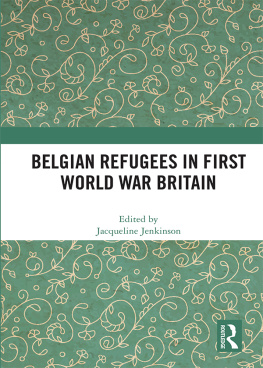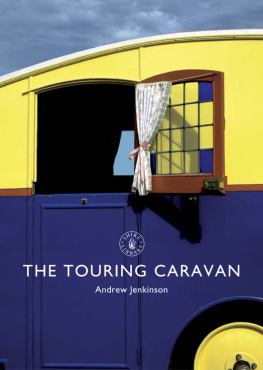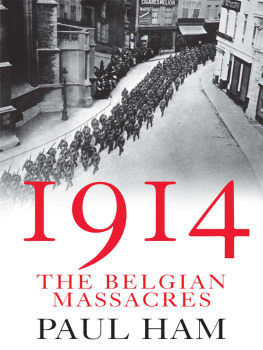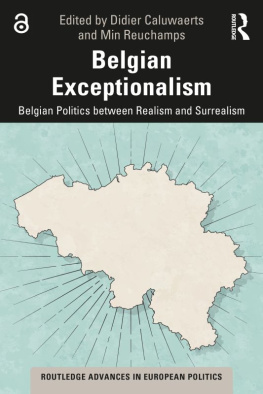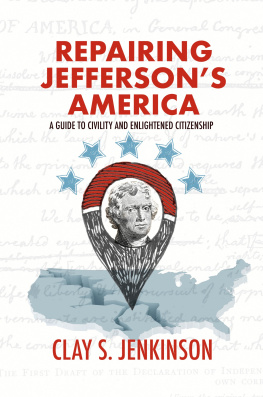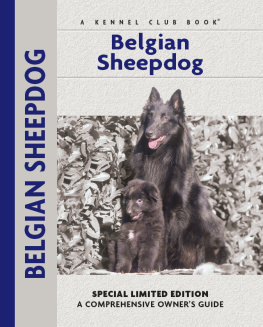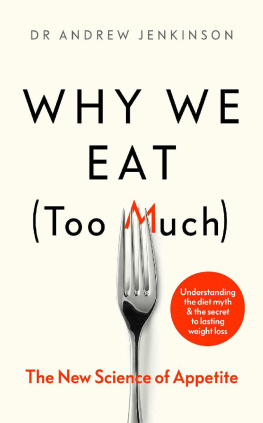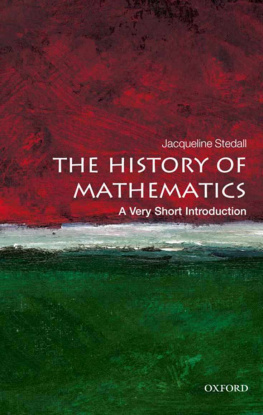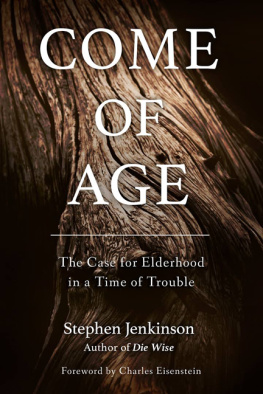Belgian Refugees in First World War Britain
Around 250,000 Belgian refugees who fled the German invasion spent the First World War in Britain the largest refugee presence Britain has ever witnessed. Welcomed in a wave of humanitarian sympathy for Poor Little Belgium, within a few months Belgian exiles were pushed off the front pages of newspapers by the news of direct British involvement in the war. Following rapid repatriation at British government expense in late 1918 and 1919, Belgian refugees were soon lost from public memory with few memorials or markers of their mass presence.
Reactions to Belgian refugees discussed in this book include the mixed responses of local populations to the refugee presence, which ranged from extensive charitable efforts to public and trade union protests aimed at protecting local jobs and housing. This book also explores the roles of central and local government agencies that supported and employed Belgian refugees en masse yet also used them as a propaganda tool to publicise German outrages against civilians to encourage support for the Allied war effort. This book covers responses to Belgian refugees in England, Scotland, Ireland and Wales in a Home Front wartime episode that generated intense public interest and charitable and government action.
The chapters in this book were originally published as a special issue of Immigrants & Minorities: Historical Studies in Ethnicity, Migration and Diaspora.
Jacqueline Jenkinson is a Senior History Lecturer at the University of Stirling, UK. She has published widely on minority groups including Lithuanian, Belgian refugees and black colonial Britons in the First World War. Her book on the seaport riots, Black 1919: Riots, Racism and Resistance in Imperial Britain, was published in 2009.
Belgian Refugees in First
World War Britain
Edited by
Jacqueline Jenkinson
First published 2018
by Routledge
2 Park Square, Milton Park, Abingdon, Oxon, OX14 4RN, UK
and by Routledge
711 Third Avenue, New York, NY 10017, USA
Routledge is an imprint of the Taylor & Francis Group, an informa business
2018 Taylor & Francis
All rights reserved. No part of this book may be reprinted or reproduced or utilised in any form or by any electronic, mechanical, or other means, now known or hereafter invented, including photocopying and recording, or in any information storage or retrieval system, without permission in writing from the publishers.
Trademark notice: Product or corporate names may be trademarks or registered trademarks, and are used only for identification and explanation without intent to infringe.
British Library Cataloguing in Publication Data
A catalogue record for this book is available from the British Library
ISBN 13: 978-1-138-29618-3
Typeset in Myriad Pro
by diacriTech, Chennai
Publishers Note
The publisher accepts responsibility for any inconsistencies that may have arisen during the conversion of this book from journal articles to book chapters, namely the possible inclusion of journal terminology.
Disclaimer
Every effort has been made to contact copyright holders for their permission to reprint material in this book. The publishers would be grateful to hear from any copyright holder who is not here acknowledged and will undertake to rectify any errors or omissions in future editions of this book.
Contents
Jacqueline Jenkinson
Daniel Laqua
Rebecca Gill
Christophe Declercq and Helen Baker
Jacqueline Jenkinson
William Buck
Lorna M. Hughes
The chapters in this book were originally published in Immigrants & Minorities, volume 34, issue 2 (July 2016). When citing this material, please use the original page numbering for each article, as follows:
Jacqueline Jenkinson
Immigrants & Minorities, volume 34, issue 2 (July 2016) pp. 101112
Daniel Laqua
Immigrants & Minorities, volume 34, issue 2 (July 2016) pp. 113131
Rebecca Gill
Immigrants & Minorities, volume 34, issue 2 (July 2016) pp. 132150
Christophe Declercq and Helen Baker
Immigrants & Minorities, volume 34, issue 2 (July 2016) pp. 151170
Jacqueline Jenkinson
Immigrants & Minorities, volume 34, issue 2 (July 2016) pp. 171191
Lorna M. Hughes
Immigrants & Minorities, volume 34, issue 2 (July 2016) pp. 210231
For any permission-related enquiries please visit:
http://www.tandfonline.com/page/help/permissions
Helen Baker is Chair of the East Twickenham Centennial Group. She is researching the history of the First World War Belgian refugees in the area.
William Buck is a Digital Repository of Ireland Postdoctoral Researcher working on the Letters of 1916 digital humanities research project located at An Foras Feasa, National University of Ireland (NUI) Maynooth, Ireland.
Christophe Declercq is a Lecturer in Translation Studies at CenTras, University College London, UK. His research looks at Migration, Language, Linguistics and Literature, and European Studies.
Rebecca Gill is a Lecturer of History at the University of Huddersfield, UK. Her research and teaching interests cover nineteenth- and twentieth-century history, in particular the history of modern war, humanitarian aid and empire.
Lorna M. Hughes is a Professor in Digital Humanities at the University of Glasgow, UK. Her research addresses the creation and use of digital cultural heritage for research, with a focus on collaborations between the humanities and scientific disciplines.
Jacqueline Jenkinson is a Senior History Lecturer at the University of Stirling, UK. She has published widely on minority groups including Lithuanian, Belgian refugees and black colonial Britons in the First World War. Her book on the seaport riots, Black 1919: Riots, Racism and Resistance in Imperial Britain, was published in 2009.
Daniel Laqua is a Senior Lecturer in European History at Northumbria University, UK. His research deals with transnational movements and associations in nineteenth-/twentieth-century Europe. He is particularly interested in competing conceptualisations of global order, the role of peace groups and the relationship between nationalism and internationalism.
Jacqueline Jenkinson
ABSTRACT
This article introduces the special edition on British responses to Belgian First World War refugees by assessing the historiography on this subject area. It then considers the six articles in the collection.
Introduction
Between 200 and 250,000 Belgian refugees spent all or large parts of the First World War in Britain. Their arrival in the early months of the war evoked much immediate sympathy and an outpouring of civilian, charitable and government effort to support, house and employ them. Welcomed in a wave of humanitarian sympathy for Poor Little Belgium and exploited as a means of fostering anti-German sentiment, within a few months they were pushed off the front pages of newspapers by the news of direct British involvement in the war. Following rapid repatriation at British government expense in late 1918 and 1919, Belgian refugees soon became a forgotten group of temporary sojourners, whose presence had prompted no permanent alteration in government policy towards foreign-born residents. They were also soon lost from public memory with few memorials or markers of their mass presence; although at personal-level memories, family interconnections and friendships remained.


